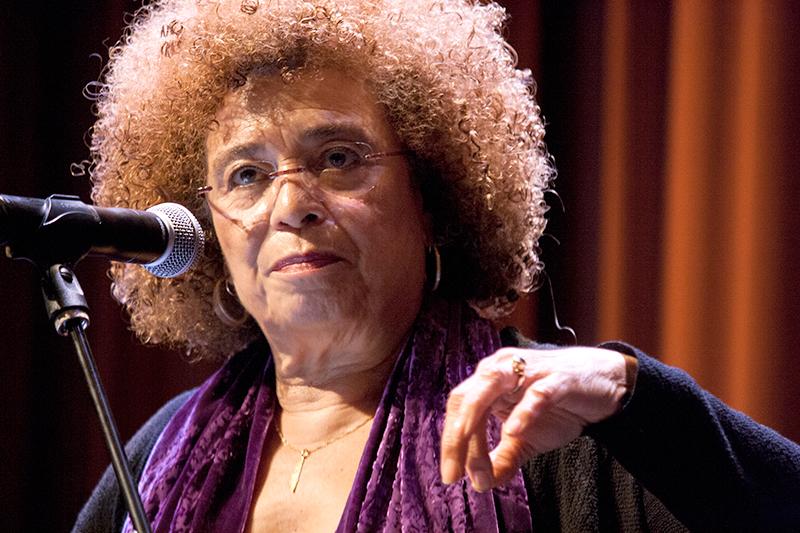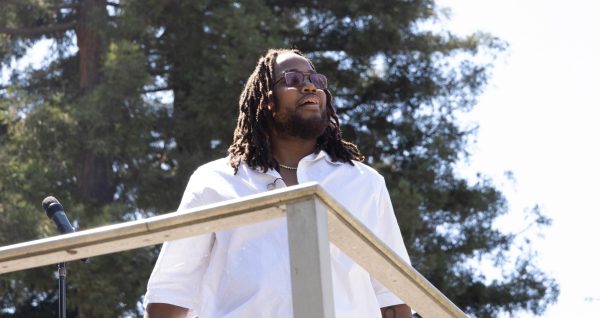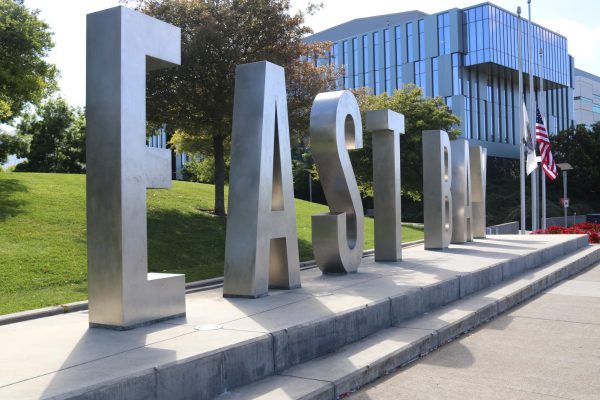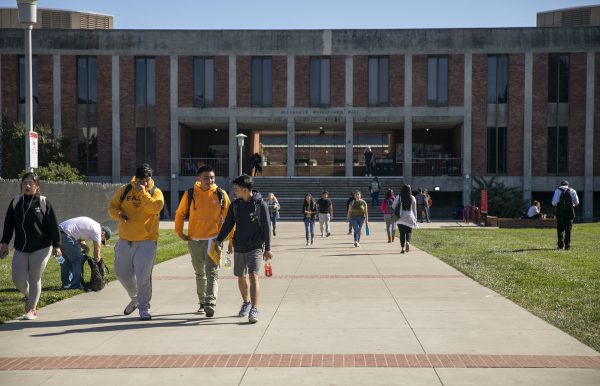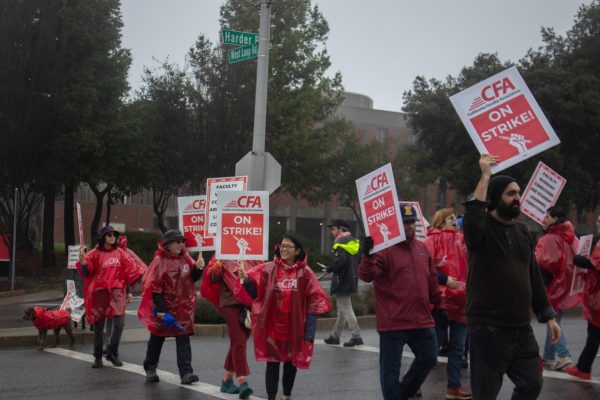Angela Davis advocates prison reform in speech at CSUEB
Political activist Angela Davis spoke passionately in her speech on campus.
On Tuesday, Angela Davis, Ph.D., lectured students, alumni, and faculty in the University Theatre at California State University, East Bay, on the need for prison reform, arguing that the current U.S. political system is one that oppresses people of color by keeping them poor and marginalized.
Davis, who holds a doctorate in philosophy from Humboldt University, is an accomplished author, scholar, political activist, feminist, communist, prison abolitionist and professor emeritus of the University of California, Santa Cruz.
She advocates for LGBTQ rights and animal rights, and is a vegan. Davis was a longtime member of the Communist Party and had close ties with the Black Panther Party during the civil rights era but was not a member.
Her life’s work has been both influential and controversial, arguably making her an American icon of both the Civil Rights and the Counterculture movement of the 1960’s.
University President Leroy Morishita was among the more than 480 guests in the theatre. A university Black History Month committee agreed to invite Davis as a guest speaker.
ASI Diversity Center Manager Jonathan Stoll said they chose Davis because she is “an African American speaker who could celebrate African American culture, she lives in the Bay Area and being such a profound activist and scholar who can speak on so many different levels.”
In her lecture, Davis argued that the prison industrial complex over incarcerates Black people, which is a racist response to societal problems, broadly labeled as crime, that are created by an unjust capitalist political system.
She quoted the 13th Amendment, saying “Neither slavery nor involuntary servitude, except as a punishment for crime. Something akin to slavery emerged through the punishment apparatus.”
Davis argued that there must be a populist revolution of the masses to reinvent a new society in which all forms of oppression and institutional racism cease.
She linked together racism, hetero-patriarchy, torture, war, militarism, homophobia, transphobia, xenophobia, capitalism and its destruction of the environment. She said, “Today it is incumbent upon us to understand all of the interconnections and intersections that bring social justice issues together.”
Davis has a history of controversy. While teaching at UCLA in 1970, she received death threats and chose to purchase weapons for self-defense.
A warrant for her arrest was issued because of her alleged ownership of the gun used in the abduction and murder of Judge Harold Haley that same year, and J. Edgar Hoover placed Davis on the FBI’s Ten Most Wanted List.
Davis fled the state and went into hiding until her arrest, but in 1972 she was acquitted of all charges. Later she visited Cuba and the Soviet Union, and in 1998 founded the Critical Resistance Organization to advocate abolishing the penitentiary system.
Sophomore Shuaib Amiri said, “I like how she mentioned diversity and political activism. I think that’s important, I personally am a Muslim American so I feel very connected to what she said, it actually encouraged me to become more active politically. I appreciate the Diversity Center holding this event.”
The audience gave Davis three standing ovations, once when she appeared on stage, after her lecture, and at the conclusion of a question and answer segment. Attendees then formed a line to purchase her books, get an autograph or to speak with her.Davis said, “Now is certainly the time to imagine and struggle for a better world for us all.”
The event was free for students. The Diversity Center, which operates with a programming budget of about $60,000, pays for guest speakers via mandated fees that are outside of tuition.




